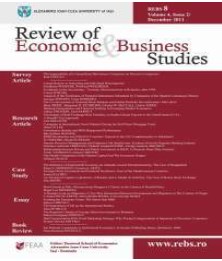EFFECT OF MONETARY INCENTIVES ON THE DEMAND FOR ELECTRICITY OF DOMESTIC CONSUMERS – CASE OF ISRAEL
EFFECT OF MONETARY INCENTIVES ON THE DEMAND FOR ELECTRICITY OF DOMESTIC CONSUMERS – CASE OF ISRAEL
Author(s): Adriana Zait, Shimon ElbazSubject(s): Energy and Environmental Studies, Economic policy, Socio-Economic Research
Published by: Editura Universităţii »Alexandru Ioan Cuza« din Iaşi
Keywords: Electricity Demand; Demand- Side Management; Smart Grid; Rebound Effect; Monetary Incentive; Consumer Behaviour; Household Electricity Consumption;
Summary/Abstract: This research, based on a pilot study performed by the Israeli Electricity Company (IEC) in the framework of a demand management arrangement, focused on an economic approach for influencing domestic customers’ electricity consumption. The main objectives were to find out if monetary incentives in the form of a constant discount in the household consumer’s electricity bill (with no connection to consumption levels) influence consumers participating in a demand management arrangement with their electricity provider (here the IEC) and if such an incentive will lead to a decrease in the participants’ electricity consumption and/or a shift in their consumption from peak to low demand hours. The study examined also the monetary incentive’s influence on the participants’ willingness to join a future arrangement. The findings show that the participants who received a constant incentive increased their consumption, contrary to the expected behaviour, suggesting the presence of a “rebound effect”. One of the incentives that predicted a tendency to save electricity was the pro environmental attitude of the consumer, whereas financial incentives did not predict a tendency to save electricity. Damage to consumer comfort caused by load shedding exerted no significant influence. The economic incentive of a discount in the electricity bill increased the consumers’ willingness to join a future arrangement, even at the cost of compromising their privacy, although the possibility that this arrangement would lead to the loss of their control of home electric appliances as a result of load shedding drastically decreased this willingness. A positive financial incentive was found to have a minor influence on consumers’ willingness to participate in a demand management arrangement, while a negative incentive (the wish to avoid fines) was found to be very influential. Comparing to previous studies, the results are mixed, confirming some previous findings and contradicting others – and they offer an important contribution for the worldwide debate on energy conservation and household electricity reduction, through the Israeli dimension in a complex puzzle.
Journal: Review of Economic and Business Studies (REBS)
- Issue Year: 2018
- Issue No: 21
- Page Range: 131-162
- Page Count: 32
- Language: English

